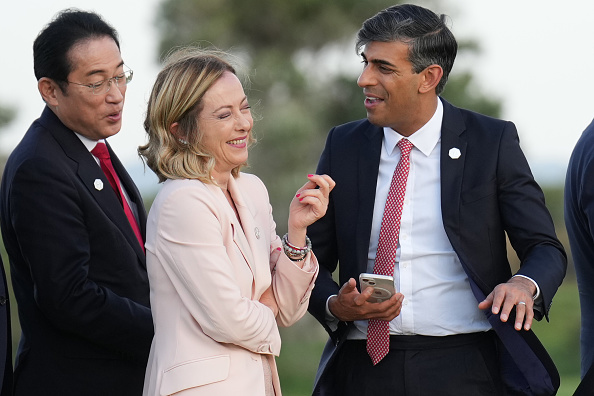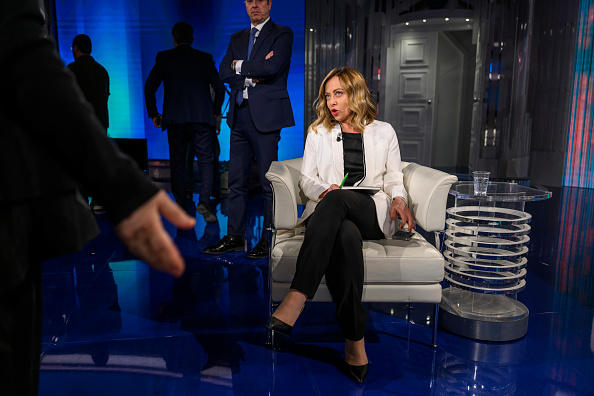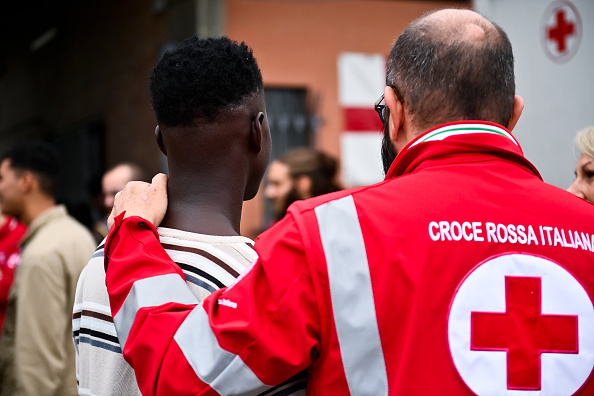Italian Prime Minister Giorgia Meloni will lack the allies she needs for a blocking majority to deny Ursula von der Leyen a second term as European Commission president, according to Italian media.
“In order to [make such a] block, you have to put together at least eight leaders,” which was “not in the air” in this case, Marco Bresolin, European Union correspondent for the La Stampa news organisation, told Brussels Signal.
“For the moment, the most likely scenario” was that she would abstain in the EC president vote, he said.
Meloni has reportedly been so unhappy with the process that she refused to pick up the telephone when Greek PM Kyriakos Mitsotakis rang to tell her about the final deal.
She described a June 17 leaders’ dinner as surreal, with six EU leaders keeping the others waiting for three hours as they decided on their preferred candidates.
However, “she’ll go, in the end” to the June 27-28 meeting of EU leaders to endorse von der Leyen’s second term, Nicholas Whyte, Brussels senior director for the public affairs firm APCO, told Brussels Signal.
Meloni “wants to make the system work, and they will have ensured she [von der Leyen] gets something”, such as a senior Commissioner role, he predicted.
A disappointed Meloni told Italy’s legislature the day before the leaders’ dinner in Brussels that discussed the EU’s top jobs: “Citizens’ votes are not being taken into account in EU appointments…it’s time for a change”.
Together with a “change of political pace” that was “in line with the message given by the polls”, she demanded a top Commission portfolio for Italy.
“We are a founding country of the EU and the third-largest Member State by population,” Meloni argued.
She said she would like an Italian to succeed Margrethe Vestager as the EU’s vice president in charge of trade, competition and industrial policy.
That makes for a punchy upcoming summit as it is likely she will again cross swords with French President Emmanuel Macron, who wants that job for a French citizen as the price of his own support for a von der Leyen second term as EC president.
Meloni and Macron already traded blows at the G7 summit over June 13-15.
“Of course, the standard EU response to this situation is to merge and split the jobs,” said Whyte.
Neither Paris or Rome particularly wanted the role of economy commissioner, who will be in charge of monitoring compliance with EU debt and deficit rules – which both Italy and France are currently in breach of.
Ireland, meanwhile, has sought a senior economic role in the EC for the country.
The EU vote comprehensively “rejects the governments of Spain, France, and Germany”, each of which is backing von der Leyen for a second term, Meloni told Italy’s chamber of deputies on June 26.
While government parties received just “16 per cent in France, 32 per cent in Germany, 34 per cent in Spain” in the European Parliament elections of June 6-9, her own government received a majority. She said: “Only in Italy, 53 per cent of those elected represent government parties.”
Voters rejected an EU that was turning “into a sort of bureaucratic giant”, one which was “too invasive” but also weaker globally, added Meloni.
Instead, the EU should “apply the method that this government is applying in Italy”, as voters suggested, starting with “clearing the bureaucratic forest”, she said.
Meloni reflected a “strong political consensus both domestically and in Europe”, Allianz Research chief economist Ludovic Subran told Brussels Signal.
An embarrassment ahead of the leaders’ summit saw incorrect information about the majority von der Leyen needed posted by the EU.
The bloc’s website stated she and the other candidates only required a qualified majority (55-65 per cent), but “the information on the EU website is incorrect”, Bresolin stated.
Instead, candidates for the top jobs actually needed a “strengthened qualified majority” in the European Council — one reflecting 72 per cent of countries and 65 per cent of people, a higher bar for von der Leyen’s backers, he pointed out.
That is according to Article 238 of the Treaty on the Functioning of the European Union, which says the European Council requires a “strengthened qualified majority” for proposals that do not come from the EC.





